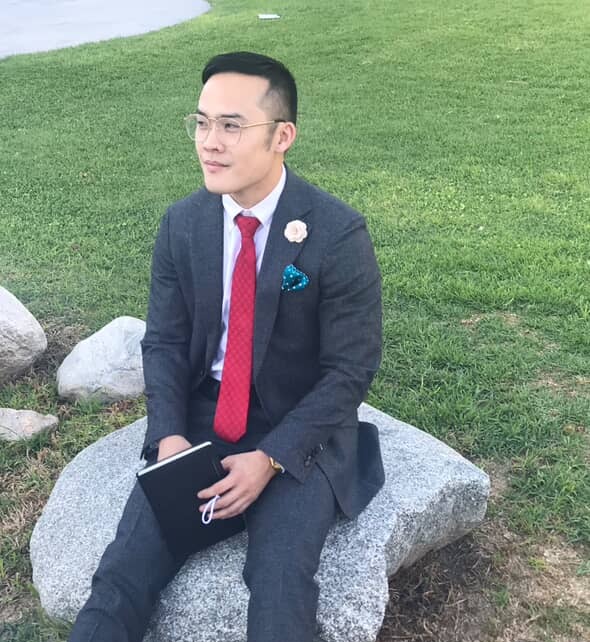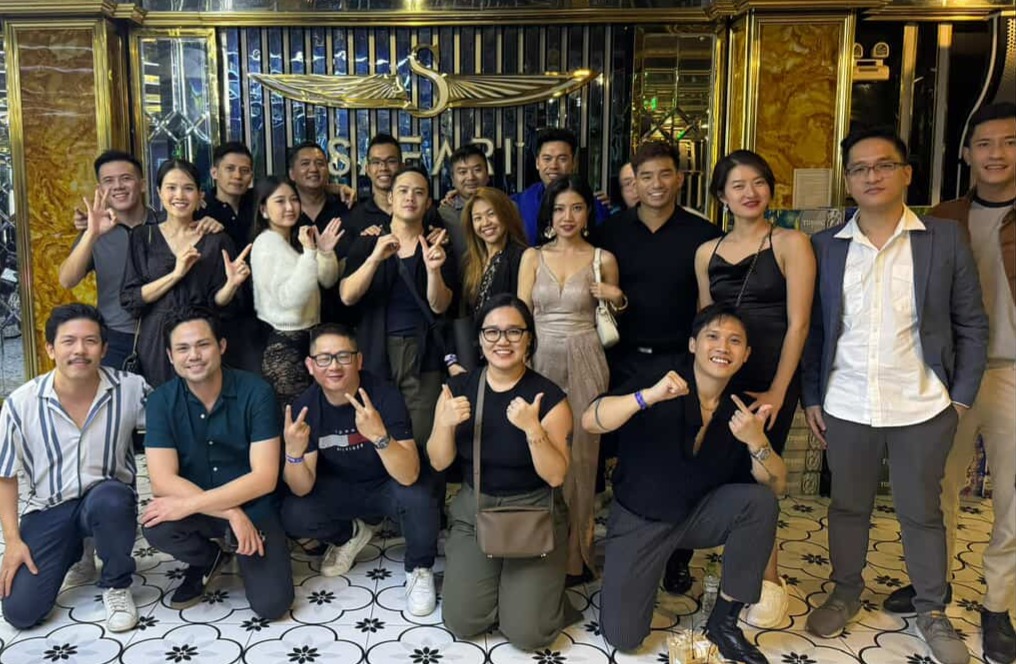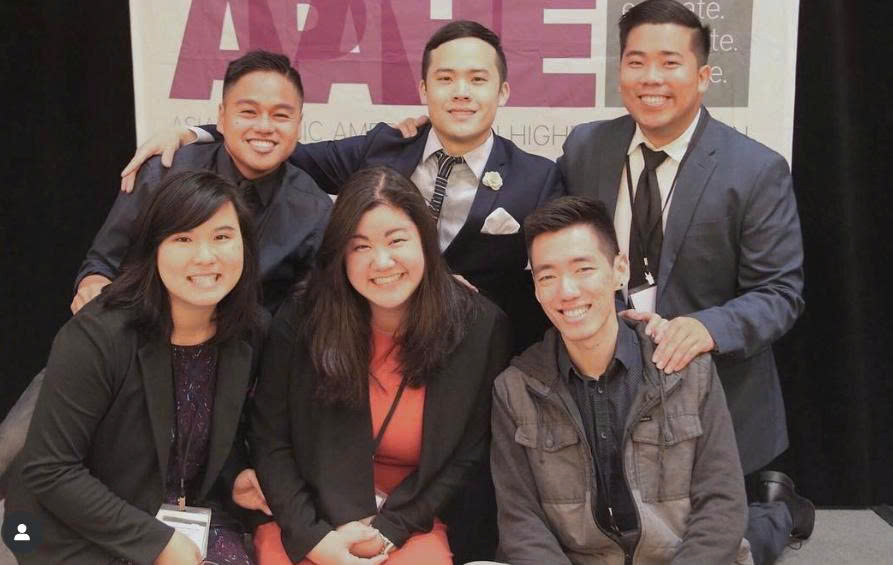Timothy Hiền Phạm, or Tim, was born and raised in the U.S., a second-generation Vietnamese American.
By day, he works in the aerospace industry, focusing on training and people development. By night, he finds himself dreaming about Vietnam.
He has a good job, a Master’s in Organizational Development, and a comfortable life in the U.S., everything predictable and stable.
When we first met through a mutual friend, what stood out most was how simple he was quite the opposite of his technical profession.
So I wondered: “Why would someone who seems to have everything want to start over in Vietnam?”
Maybe it’s not about what he has, but about what he’s been missing. For Tim, the thought of “coming home” isn’t driven by one reason. It’s a mix of 5 small but significant realizations.
1. The Question Of Belonging
“Too American to be Vietnamese, and too Vietnamese to be American.”
Tim smiled as he said it, but it wasn’t a joke.
“In the U.S., I’m an American citizen. Sometimes I think 100% like an American, but often times, when I venture out to the rest of America, I just feel different and am reminded of that when everyone looks differently than me. But when I’m around Vietnamese people, I feel a sense of ease and belonging too. That duality can be confusing.
“In the U.S., the Vietnamese community may somewhat be connected, but the population is extremely small compared to the demographics of the rest of the country. But when I come to Vietnam, even though everyone’s Vietnamese, and most people grew up thousands of miles away, the sense of connectedness is sometimes even stronger than with the folks back home whom I share a similar birthplace and language with.”
That in-between space is something many second-generation Vietnamese share. It’s what made Tim start asking: Where do I really belong?

2. Simple Joys Feel Easier In Vietnam
“People ask me, ‘Life’s good in the U.S., why come back?’
I ask them, good in what way? Money or happiness?”
Tim doesn’t hesitate.
“America is a great place to make money and grow your career, but beyond that, for things like family and community, a shared sense of unity, crime and safety, Vietnam is miles ahead. I’ve reached a point where I value joy more than wealth, but again, who is living a better life, the person making six figures in America who is constantly stressed, making ends meet, too busy to meet friends and family, and can’t even walk outside at night? Or is it that person making less in Vietnam but able to enjoy the fruits of life, like friends, family, and laughing over a beer at 2am?”
Still, he admits, leaving everything and moving to Vietnam isn’t easy.
“There are pros and cons everywhere. In Vietnam, my language skills aren’t the best, the climate is hard to adjust to, and the lifestyle is different, but what matters is what you can put up with.”
For someone who’s taught others to take off, Tim is now learning how to land, both literally and emotionally.

3. Vietnam Feels Different From His Parents’ Memories
The last time Tim visited Vietnam was in 2024 — his first trip back in 16 years.
“It feels different now. Younger, faster, full of energy, vibrant. Vietnam’s changing quickly.”
He grew up hearing stories from his parents about their Vietnam — the one they left behind.
Now, he wants to see the country for himself.
“Some people return for love, others for cheaper living. For me, I just want to experience Vietnam with my own eyes — but also to learn about my parents and their upbringing through my own lenses.
Coming back, for Tim, isn’t about nostalgia. It’s about curiosity — and connection.

4. Starting With Vietnamese Name
“Does using a Western name make someone less Vietnamese?”
Tim laughed.
“Not really. But being proud of your Vietnamese name and learning to pronounce Vietnamese names correctly — that matters.
He didn’t use his Vietnamese name in school, worried it might get mispronounced or teased.
Now, Tim feels differently.
“Whatever name you use, make sure it’s said with respect. And if you’re Vietnamese, maybe take time to learn how to say names like Nguyễn, Quỳnh, Lê, Phạm. It’s not that hard, and we take time to learn American and Euro names, why should Vietnamese be any different? I even learned to pronounce the city “ Dak Lak” when I was there last year.
To him, calling a name correctly is more than language, it’s a quiet way to stay connected to one’s roots.

5. A Plan To Come Home, One Step At A Time
Tim’s decision to return isn’t impulsive; it’s calculated, like one of his flight plans.
“Each trip back gets longer. One week, then two, then maybe a few months. Eventually, I’ll stay for good.”
He’s already laying the groundwork: joining overseas Vietnamese communities, following pages like brokethehabit and Vietcetera, and exploring job opportunities related to training and education.
“Vietcetera Open LA is happening soon. I’ll definitely be there to connect, to learn, and maybe to bring my plan one step closer.”
From someone who’s mastered the science of training and development, Tim is now learning the art of training himself, back to the basics.
Next on the itinerary, Vietcetera Open journey lands in Los Angeles, the vibrant melting pot of the Vietnamese community. Vietcetera Open LA 2025 is a half-day event that will spotlight inspiring Vietnamese voices in the US, featuring powerful stories of identity, creativity, and cultural impact on the global stage.Date & time: 9 AM - 1 PM (UTC -7) | October 18, 2025
Location: Los Angeles Performing Arts Conservatory, 1534 North Highland Avenue, Hollywood, CA 90028
The event is a lead-in to Hà Anh Tuấn Live Concert in Los Angeles “Sketch A Rose", marking a historic milestone as the first-ever performance by a Vietnamese artist at Dolby Theatre, the legendary venue for the Oscars.
*Last chance to get Hà Anh Tuấn Live Concert in Los Angeles “Sketch A Rose" tickets via Vietcetera Open LA 2025.
Secure your tickets here to join the journey!
